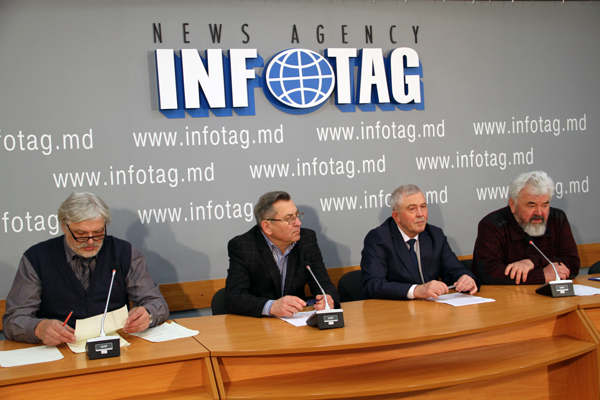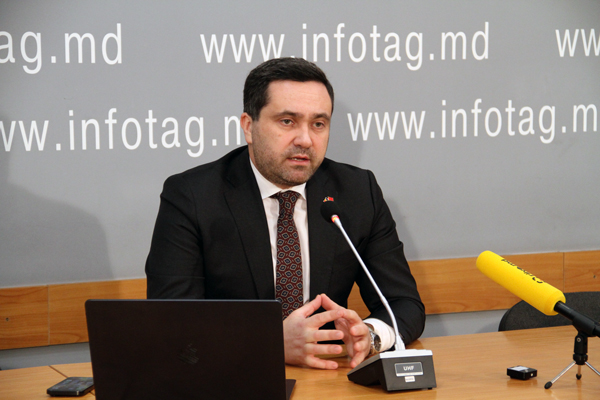Interview
“JUDGES IN MOLDOVA ARE ABSOLUTELY CORRUPT” – PAVLOVSCHI

Infotag’s interview with Stanislav Pavlovschi, former Member of the European Court of Human Rights from Moldova.
Q: Mr. Pavlovschi, the Moldovan judges’ community held their extraordinary general meeting last week, but failed to elect 3 members to Supreme Magistracy Council (SMC). By the way, those three vacancies were sought by as many as 16 candidate judges. Why such a boom around the posts? And how efficient is the institution of the Supreme Magistracy Council? Can it really withstand and combat corruption in the judges’ community and be kind of a purgatory for the judiciary?
A: I would not rather simplify things, but the position of a SMC member provides for certain good things of life. This is a kind of sinecure, which all judges dream about through their whole life’s career: few work, trips abroad, all kinds of seminars, conferences, visits… In addition, a possibility to influence on their colleagues – judges. I guess these are the candidates’ main driving motives. I would like very much to hope that people still exist who sincerely want to change the situation in the judiciary system for the better. But, honestly, it is so difficult to believe in this.
Q: Recently, the Supreme Magistracy Council provided state protection to a Supreme Court judge. That was the first such case in the Republic of Moldova. Do you think our judges really need bodyguards or state-provided protection? How often are they subjected to intimidation or attacks by people discontented with court judgments?
A: The most reliable guarantee of judge’s security is strict abidance by the law. But in the conditions of the absolute corruption of Moldovan judges, which was stated even by President Nicolae Timofti, and in conditions when everything is sold and bought, it is just impossible to ensure security to judges! I know from my own work experience that nobody will ever raise one’s hand against an incorruptible judge. But if a judge accepted a bribe, but did nothing or little to please the bribe giver, then really such a judge may be in danger.
As for our current state authorities, they can present no danger to a judge as long as the judge fulfils obediently all orders coming from a prosecutor. But if the judge starts displaying excessive independence and impartiality, then the Prosecutor Office has all possibilities to bring such judge to heel, for instance, by starting disciplinary proceedings or anything else – up to launching a criminal case on invented grounds. For this reason, judges avoid quarreling with prosecutors. Due to this, the entire society suffers, and the interests of justice suffer, too.
Q: Moldovan President Nicolae Timofti is a former Supreme Court Chairman, a judge with over 30 years of professional experience. How rightful do you think was it to give such post to a person who used to declare quite hard judgments against Moldovan nationalists in the Soviet epoch?
A: This is Mr. President’s personal moral dilemma. As the Bible teaches us, “Judge not that ye be not judged”. Personally I have no idea of the story you are talking about. As a matter of fact, forensic psychiatric examinations used to be carried out in those years to establish if a person is mentally ill and if the person needs specialized treatment. If such medical conclusion from a forensic psychiatrist was received in the said cases, then questions should be posed not so much to the judge [Timofti] but, rather, to the psychiatrist who made such conclusion.
Q: Recently, the Moldovan Parliament passed a package of anti-corruption laws, which make judges the main participants and main punishable persons. The said laws have introduced new articles such as ones pertaining to illicit enrichment and to compulsory testing on a lie detector. Will judges stop taking bribes now? And are these only judges who accept bribes in this republic?
A: No, people will not of course stop taking bribes, but the number of such corrupt officials should diminish. Proving of bribery is very complicated and laborious a process. You need to have special methodologies, practical experience and, certainly, real professionals. I know all this from my own 20-year work experience of a prosecutor. So, the State must focus on struggle against what can be easily proved and what is an indirect indication of corruption.
I guess not very many people are aware that the making of knowingly unrightful or unfair judgments, and unlawful arrests constitute a criminal offence. Such offences are not very hard to prove because in many instance the unlawfulness of courts’ judgments is obvious. Nevertheless, in Moldova the making of illegal judgments by courts is fairly widely spread. If judges come to know that they will be necessarily brought to responsibility for their unlawful judgments, they will not make such judgments. So far, however, we have a full arbitrary rule in this sphere in Moldova: prosecutors press on courts demanding to pass illicit judgments. Judges obey – not to spoil friendship with prosecutors, while the prosecutors do not initial proceedings against judges for their being unscrupulous. That’s what we actually have.
Needless to say that bribes are willingly accepted by state officials from other power organs, but the danger of the corruption activities by judges surpasses manifold the danger of corruptness of other state organs because if there is no justice in a state, there is no state as such. So, now you can make conclusions yourself about the Moldovan state’s condition.
Q: If so, why the incumbent democratic authorities of Moldova have not yet put to jail even a single high-ranked civil servant or political, like for instance in Ukraine or Romania?
A: One of the leaders of our Coalition for Pro-European Governance provided an answer to this question recently, saying that if only a real struggle against corruption is started in Moldova in earnest one day, the ruling coalition will break up immediately. If we want Moldova to exist, we have no other way except launching a merciful struggle against corruption because it represents a real danger to the nation’s movement towards European integration. I think that sooner or later, our development partners will put this question point blank, but this will happen already after Vilnius.
Infotag: Thank you very much for your interview, Mr. Pavlovschi.
Add Comment
-
I can answer that. There are two roduns of judging. In the first round it's one judge per category, separating the wheat from the chaff. The best sites from that round move on to the second round, where two judges look at them separately. Their scores are averaged to determine the winner & runners-up.So every nomination gets looked at by at least one judge; the semi-finalists have been looked at by three.And as a last step I disqualify Lee's site because he won this year.
-
Your article peeflctry shows what I needed to know, thanks!
























Add Comment